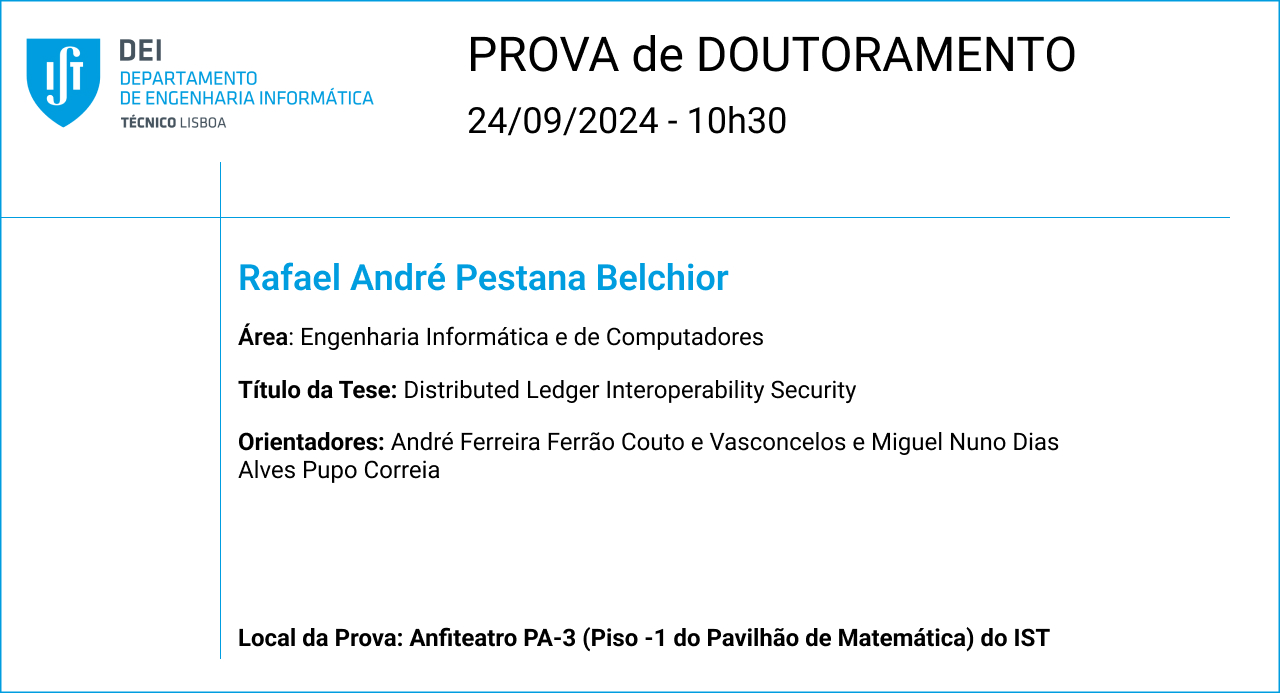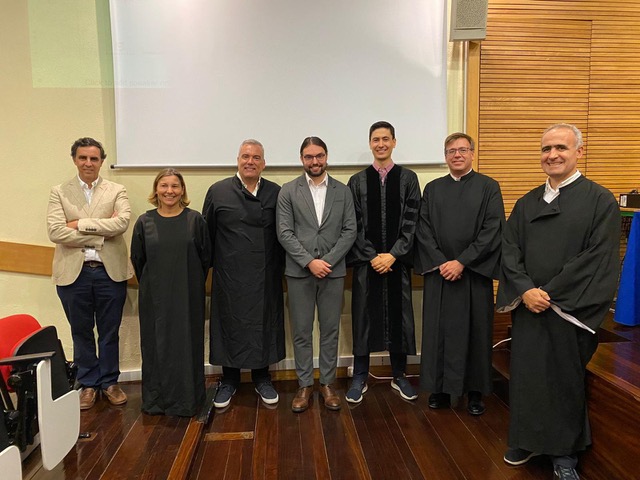Prova de Doutoramento do aluno Rafael André Pestana Belchior

Área: Engenharia Informática e de Computadores
Título da Tese: Distributed Ledger Interoperability Security
Local da Prova: Anfiteatro PA-3 (Piso -1 do Pavilhão de Matemática) do IST
Data: 24/09/2024
Hora: 10h30
Abstract: Blockchain interoperability conflates the need for blockchains to communicate with third‐party systems and other distributed ledgers via interoperability mechanisms (IMs). Blockchains increasingly rely on exchanging data and value across network boundaries in a more mature and interconnected set of ecosystems. However, interoperability comes with challenges. Through a systematic literature review, we identified the main challenges impacting the field: 1) the lack of a common conceptual model for blockchain interoperability, and thus a lack of evaluation frameworks for IMs; 2) the absence of organizational interoperability in most IMs; and 3) ineffective methods for blockchain interoperability security. Our contributions can be aggregated into three main groups. The first group of contributions delivers a conceptual model, evaluation framework, and decision models that allow researchers to reason about blockchain interoperability, compare solutions, and decide on the best IM given their requirements. The second group of contributions delivers a new paradigm for blockchain interoperability called the blockchain gateway paradigm, with our system called Hermes. This paradigm considers privacy and accountability in the interoperability processes across centralized and decentralized organizations. This is a suitable model for the enterprise and is a middle‐ground between permissioned and permissionless infrastructure. The last group of contributions addresses the prominent security challenge in the blockchain industry. We explore the potential SNARKs as a technology to verify computation succinctly, such that it reduces the attack surface for hackers. We propose a framework called Harmonia to build interoperable decentralized applications on top of this technology. As no technology is safe from malicious parties, we propose a new monitoring method for interoperable decentralized applications, Hephaestus. By generating a model of the interoperable application, we can analyze and monitor relevant states, allowing us to respond to attacks more effectively.

